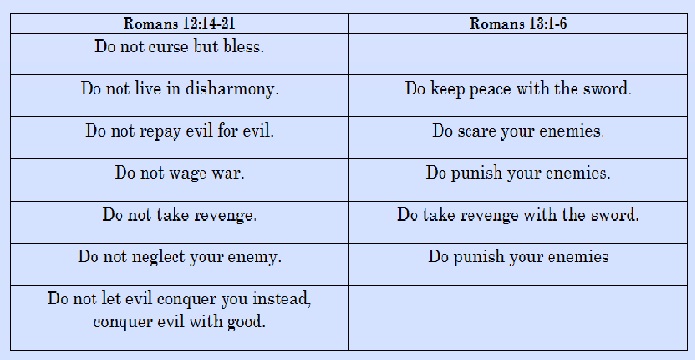by Gordon Zerbe
Both Mt. 5.38-48 and Lk. 6.27-36 were addressed to local, interpersonal or economic relations, and were intended to achieve local reconciliation. Mt. 5.41, however, went beyond this horizon to include local relations with occupying military forces, proscribing politically insubordinate and revolutionary behavior.
The pattern of a non-retaliatory conduct of endurance, characterized by the provocative readiness to accept or to perform a double hardship [Mt. 5.39b-41/Lk. 6.30], included the renunciation of the right to judicial vindication. This was not founded on the pragmatic notion that retaliation simply does not pay, but rather on the hope that such action would ultimately change the situation. In addition, this response, insofar as it is determined by the victim, means the refusal of the victim to be subjugated to any oppressor.
Mt. 5.39b disregards the Law’s provision for judicial vindication (e.g. Exod. 24.12-22.17), perhaps on the basis of Isa. 50.6-8, and Mt. 5.40b disregards the Law’s legal protection of the poor (Exod. 22.26-27). At this level of tradition the exhortations were probably interpreted in the context of an apocalyptic perspective which grounded non-retaliation in deference to God’s judgment.
While Mt. 5.45-47 contained the notion of heavenly reward for loving enemies, the other side of eschatological vindication, namely judgment upon the persecutors, was expressed in the oracles of judgment upon the persecutors. The call to love and to bless one’s persecutors stood in tension with the expectation of judgment upon the persecutors.




